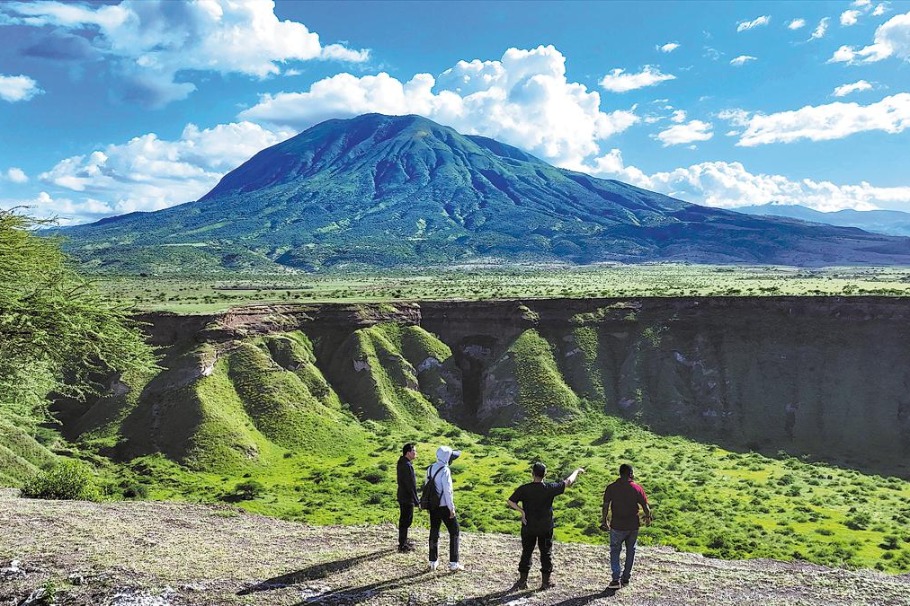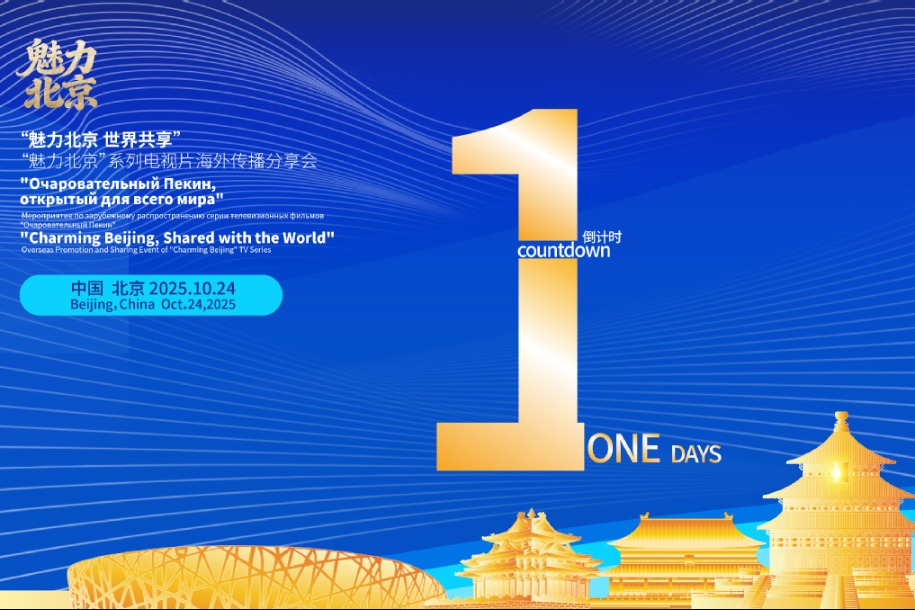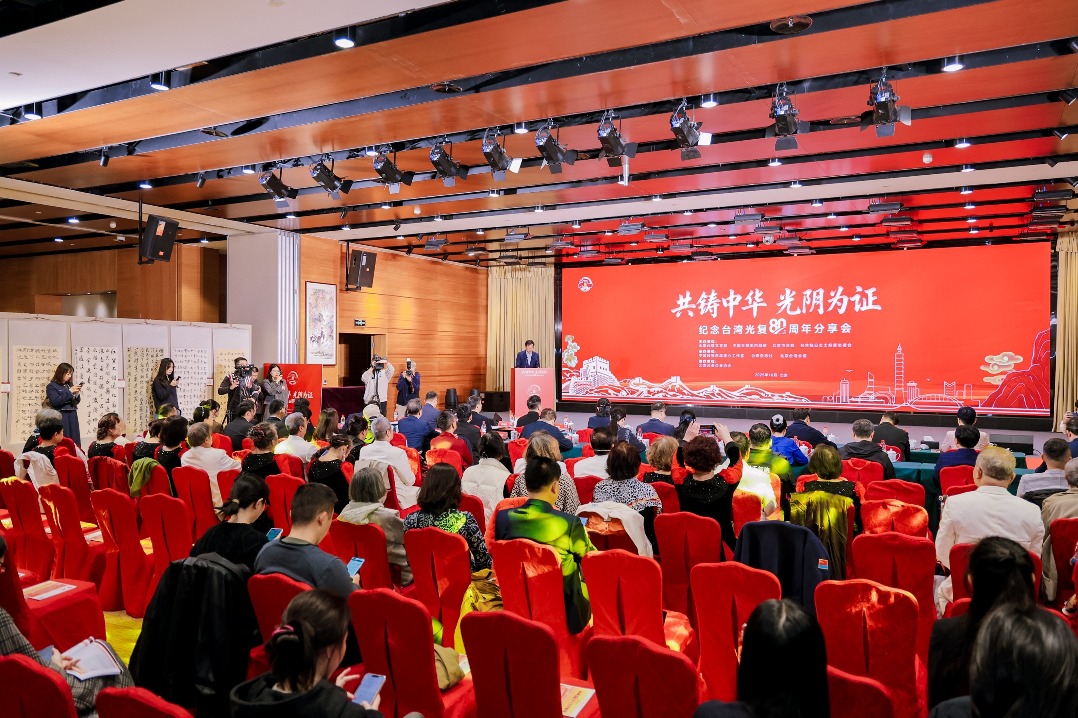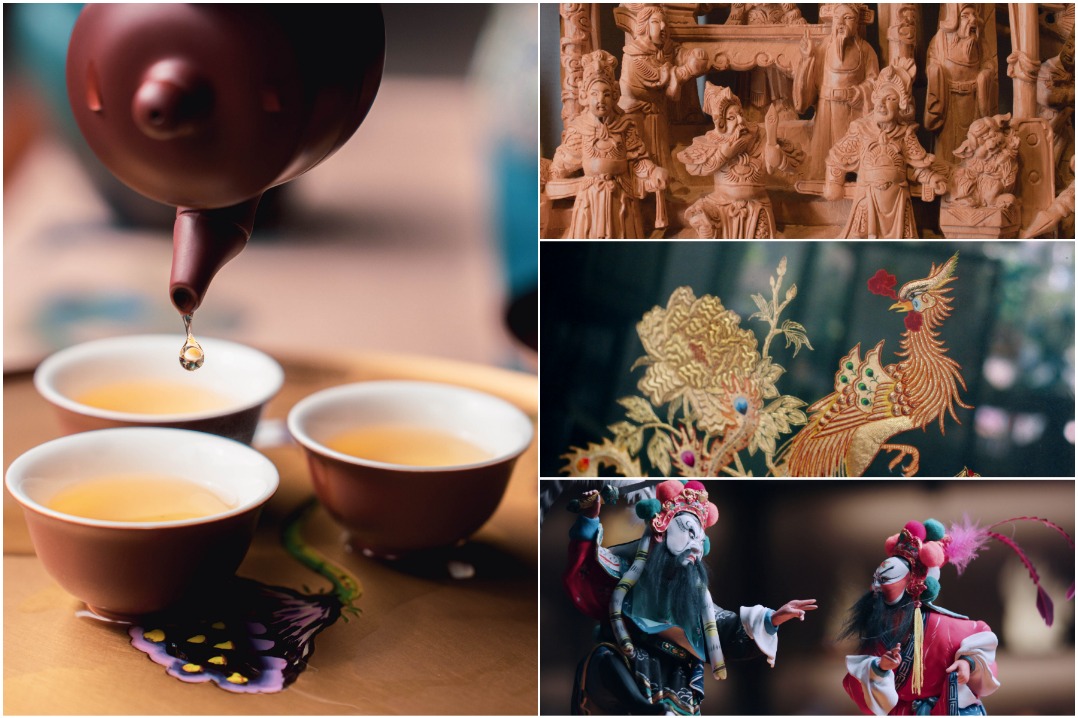Taiwan compatriots fought to liberate nation
Exhibition in Fujian province details cross-Strait resistance against Japanese invaders





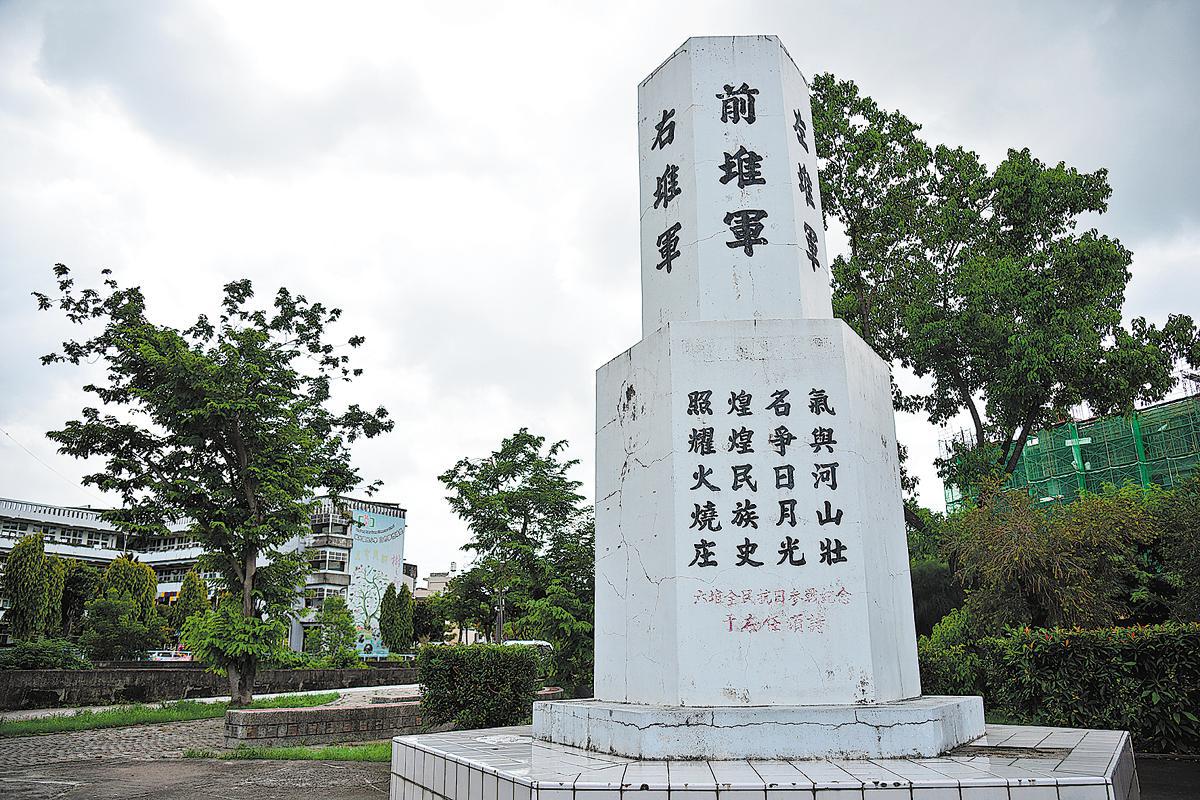
It was this vision that led him, with support from the CPC, to establish the Taiwan volunteer corps in Jinhua, Zhejiang province, in 1939. The group started with just over 30 members but quickly grew, attracting Taiwan people living in Fujian and Zhejiang provinces. Later, he also formed a youth wing — the Taiwan youth league — to involve younger generations who were good at singing and dancing in the patriotic cause.
The team had grown to more than 380 by 1945 when Japan surrendered, playing an active role along the front lines in Zhejiang and Fujian, and contributing to the resistance in various fields, including publicity and providing medical support and supplies.
As many members were doctors, they founded the first "Taiwan Hospital" in Jinhua, offering free treatment to soldiers, their families and impoverished civilians. Three more hospitals were established in Zhejiang and Fujian, along with mobile medical units that served rural communities and even front-line battlefields.
Their medical expertise proved critical in 1940, when the Japanese army launched germ warfare attacks in Jinhua and Quzhou. The team responded swiftly, implementing quarantine measures, distributing manuals on epidemic prevention, and disinfecting contaminated areas — their efforts saved countless lives.
Fluent in Japanese, some members translated captured military documents, interrogated prisoners, gathered intelligence, and even conducted counter-Japanese imperialism publicity aimed at demoralizing troops.
On Oct 25, 1945, the Chinese government announced that it was resuming the exercise of sovereignty over Taiwan. The ceremony to accept Japan's surrender in the Taiwan province of the China war theater of the Allied powers was held in Taipei. It marked Taiwan's official return to China.
Overwhelmed with emotion, General Li told his comrades, "Today, we can finally return to our hometowns with dignity, as patriotic Taiwan compatriots, and reunite with our fathers and brothers."
To commemorate the victory, Li carved the Chinese characters "fu jiang" on a rock at Wulao Peak in Xiamen, Fujian. "Fu" means restoration, and "jiang" means territory, which refers specifically to Taiwan.










